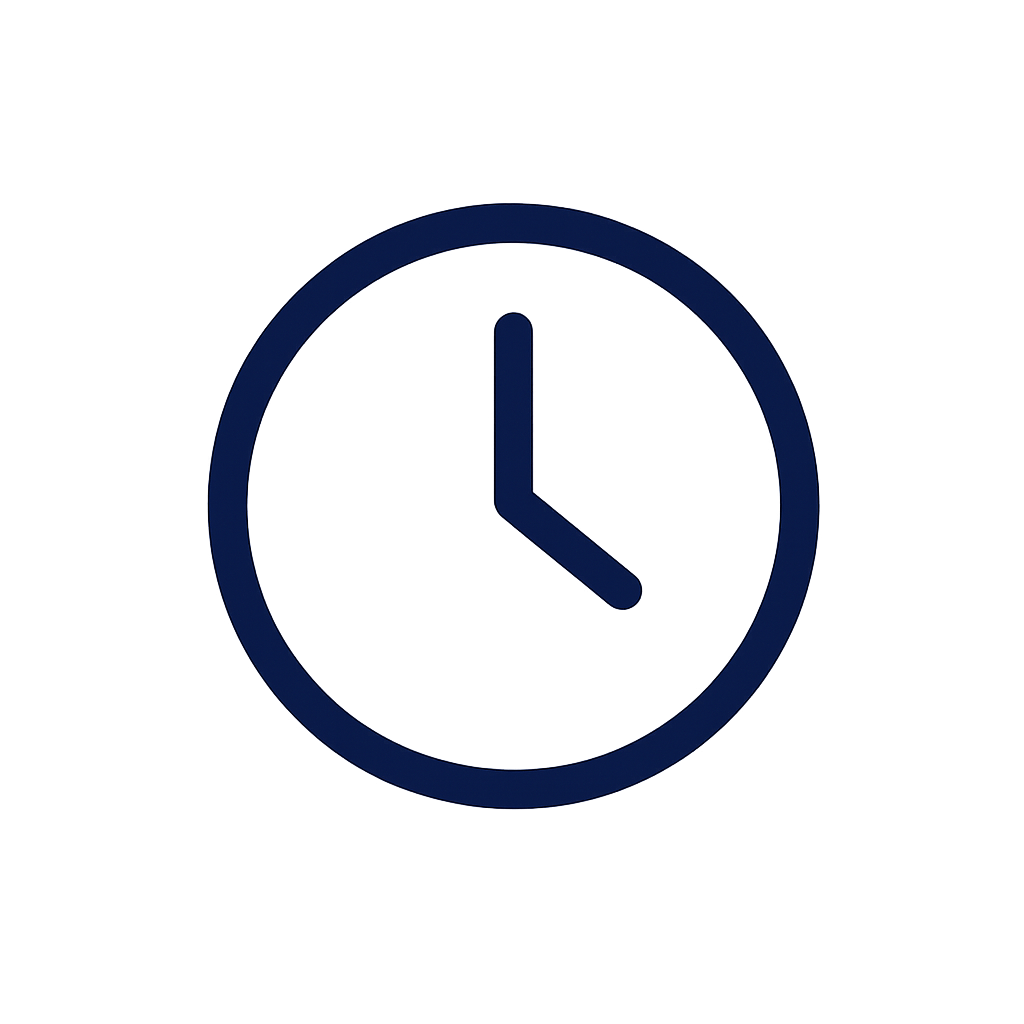CMS CAHPS Compliance & Reporting: Audit Readiness and Bonus Payments
Atlas Systems Named a Representative Vendor in 2025 Gartner® Market Guide for TPRM Technology Solutions → Read More
Atlas Systems Named a Representative Vendor in 2025 Gartner® Market Guide for TPRM Technology Solutions → Read More
Optimize and secure provider data
Streamline provider-payer interactions
Verify real-time provider data
Verify provider data, ensure compliance
Create accurate, printable directories
Reduce patient wait times efficiently.



14 min read | Last Updated: 04 Feb, 2026
For healthcare organizations, taking steps to be compliant is vital to protecting the health, safety, and welfare of the institution and its patients. Failure to follow healthcare laws and regulations can have serious repercussions. Your institution may have to pay fines, face lawsuits, government investigations, and even lose its license and reputation.
The annual penalty for HIPAA violations reaches a staggering $1.5 million, so non-compliance can be devastating for your organization. Shifting from manual compliance processes to automated solutions enhances organizational efficiency and accuracy and makes it easy to scale.
Healthcare compliance software streamlines document tracking, policy management, staff training, and more, ensuring adherence to laws like HIPAA and OSHA. It automates these tasks, reducing errors and non-compliance risks, and enhancing efficiency and transparency.
This blog post covers the best healthcare compliance software, highlighting key features, benefits, and top providers that can help your organization streamline compliance processes and keep up with evolving regulations.
Healthcare compliance software is a cloud-based, on-premise, or hybrid solution that helps organizations comply with legal, safety, and operational standards. The tool enhances organizational compliance by tracking incidents, assessing regulatory adherence, and improving risk management. It automatically stores all information regarding compliance efforts, streamlining operational efficiency, reducing errors, and improving patient safety and care quality.
The image below visually explains the healthcare compliance workflow:
Medical compliance software isn’t made equal, so it’s important to know the must-have features. Here are the top ones:
Your software should offer a central repository for policies, procedures, and compliance documents. The documents should also be easy to access and distribute across departments. Automated updates are also crucial as they ensure employees have access to the latest information. Make sure the tool has features like automated version control, access tracking, and employee attestations to promote accountability and transparency.
Your compliance solution should identify and mitigate risks before they lead to violations. Automated risk assessments, risk scoring and prioritization, remediation tracking, and trend analysis enhance risk assessments by quantifying risks based on severity and ensuring corrective actions are tracked to completion. They ensure healthcare organizations focus on the most critical threats, maintain clear audit trails for regulators, and address root causes to prevent future violations.
Customizable dashboards and reports provide deeper insights into your organization’s compliance status. Make sure the tool you choose has dashboards with key performance indicators (KPIs) like resolution timelines, reporting volume, audit scores, and policy acknowledgment rates. Exportable reports enhance compliance efforts as they can be used for presentations, audit preparedness, and board updates.
These inform relevant employees about policy changes, compliance deadlines, or issues that need attention. The compliance solution should have multi-channel notifications, escalation protocols, and customizable reminder schedules. Compliance is a continuous endeavor, and a sophisticated reminder system ensures that important tasks, deadlines, and regulatory requirements are never overlooked.
Training helps staff understand and adhere to the complex regulations governing their work. Your compliance software should provide comprehensive training features, such as automated training assignment, progress tracking and reporting, certification management, and custom course creation. Having an LMS ensures consistent, up-to-date training for healthcare professionals, which is crucial for meeting regulatory standards and providing optimal patient care.
|
Name |
Best for |
Standout Feature |
Pricing |
|
PRIME® by Atlas Systems |
Healthcare organizations that need compliant provider directories, credentialing automation, and provider lifecycle management |
Full lifecycle coverage that includes credentialing, compliance monitoring, and audit preparation |
Customized pricing |
|
VComply |
Organizations seeking an all-in-one GRC (Governance, Risk, and Compliance) platform |
It combines compliance and risk management, embedding compliance into everyday workflows |
Pro GRC Suite starts at US $1,000/month |
|
MedTrainer |
Medium to large organizations that need a unified system for compliance, learning, and credentialing |
An AI compliance coach that provides instant, guided compliance help within user workflows |
Customized pricing |
|
ComplyAssistant |
Healthcare organizations needing specialized, healthcare-focused GRC support |
Prebuilt templates and workflows aligned with HIPAA, HITECH, NIST, and other healthcare-specific regulations |
Customized pricing |
PRIME® is a healthcare compliance software designed to support compliance with federal and state regulations such as CMS mandates (including the No Surprises Act, upcoming wait-time rules, and CA SB137), while scaling across large, complex networks.
This cloud-based GRC (Governance, Risk, and Compliance) platform helps healthcare organizations streamline and automate their compliance operations. It can handle complex regulations such as HIPAA and GDPR, helping organizations centralize their compliance efforts, manage risks, and maintain audit readiness.
MedTrainer is ideal for healthcare organizations of all sizes and offers compliance, training, and credentialing tools. The platform supports major regulatory and accreditation standards to ensure audit-readiness across the board. MedTrainer is built specifically for the healthcare industry and focuses on HIPAA, OSHA, and accreditation standards.
This cloud-based GRC platform is specifically designed for healthcare organizations and provides tools for managing policy, risk, vendor, and incident compliance. It’s scalable and serves small practices as well as large healthcare enterprises.
These regulations define the security, privacy, and operational requirements that healthcare institutions must follow to protect patient data and ensure system integrity. While HIPAA and GDPR both focus on protecting sensitive health information, they differ significantly in scope, enforcement, and applicability.
Understanding these distinctions is especially important for organizations handling international patient data or operating across regions. A detailed comparison of GDPR vs HIPAA helps healthcare providers clarify their obligations and build compliance programs that address both U.S. and EU data protection requirements effectively. They share a common goal: to protect sensitive health information from breaches, misuse, and cyber threats. Here are some of the most critical regulations:
Healthcare compliance platforms map to standards like HIPAA and GDPR by embedding those requirements directly into their policies, workflows, and monitoring tools. They help organizations implement compliant processes from the start with pre-built policy templates and automated checklists. Many platforms also maintain audit trails to keep organizations audit-ready.
Complying with multiple security and regulatory frameworks is crucial for abiding by legal requirements, building customer trust, and improving operational efficiency. Your organization covers a wider range of security controls and practices and achieves a more robust security posture. It’s also better prepared to adapt to new regulations in response to new threats and vulnerabilities.
Organizations that use healthcare compliance software have real-time visibility into compliance activities for proactive risk management. They effectively minimize risk and mitigate potential compliance failures by automatically monitoring your systems and providing real-time insights into potential vulnerabilities. It can also automate the remediation process, helping your organization to address compliance issues proactively.
A healthcare compliance software solution provides a central repository for storing and managing compliance-related documents. Procedures, policies, training materials, and audit reports are organized, up-to-date, and easily accessible when needed. Audit preparation becomes easy as all documentation is stored in one place, and compliance officers can quickly generate reports to demonstrate compliance during audits.
Transparency is vital in healthcare as it helps healthcare providers gain the trust of patients. Compliance solutions promote transparency by ensuring organisations openly share their policies, procedures, and adhere to regulatory standards. Patients know what to expect from their care and have the reassurance that their healthcare provider operates within the law
When you automate compliance processes, you minimize the financial risks associated with regulatory violations and avoid costly penalties. These costs can quickly add up, especially if you rely on legacy technologies and manual processes. Healthcare compliance software also optimizes resource allocation and helps reduce compliance-related expenses.
So, how do you choose the right compliance software for your business?
Here are the key factors to consider:
1. Assess your compliance needs: Identify the primary compliance challenges your organization faces. Are you primarily concerned about HIPAA compliance or want a tool that focuses on policy enforcement?
2. Determine your budget: Assess the software’s subscription cost, implementation and training costs, and costs for additional customization or integrations. The solution should meet your budget and regulatory needs.
3. Integration capabilities: These directly impact your organization's overall efficiency. Choose a solution that works seamlessly with your existing systems, streamlines workflows, and reduces manual effort.
4. User-friendliness: The compliance software should be intuitive and easy to use for both administrators and staff. Look for features like cloud-based access and user-friendly dashboards.
5. Scalability: The software should be able to handle your organization's evolving needs without performance issues or disruptions. It should cater to an increased data volume, user base, and regulatory changes as your facility expands.
6. Customer support: Good customer support ensures you use the software effectively and address issues promptly. Look for 24/7 customer support and training resources for onboarding staff.
The image below summarizes the key requirements:
As regulations and standards change, compliance software will evolve rapidly for proactive risk management. AI will become a core part of audit predictions to help healthcare facilities proactively address vulnerabilities. AI will work with machine learning to analyze data and identify anomalies that signal potential compliance risks. It will shift auditing from reactive to predictive, ensuring continuous monitoring of strategic risks.
Real-time compliance dashboards will also play a key role, helping organizations to track regulatory adherence across multiple locations and departments. The dashboards will consolidate key compliance metrics, providing visibility into compliance status and emerging risks for faster decision-making. They will make compliance a continuous, integrated process.
The rising demand for mobile-first solutions and telehealth platforms will also impact compliance software. The platforms will offer mobile-friendly interfaces and secure access for remote teams to ensure standards are followed regardless of location. They will also integrate with telehealth platforms to ensure that telehealth services meet healthcare regulations and that remote services align with in-person care.
If your healthcare organization still uses manual compliance processes, now is the time to rethink your approach. Healthcare regulations and standards keep increasing and becoming more complex, and automation and AI can help you stay ahead. They make compliance easier and more integrated.
PRIME® by Atlas Systems bridges the gap between complex regulatory standards and everyday operations, helping your healthcare organization maintain compliance without disrupting care delivery.
See Atlas PRIME® in Action — Book your demo today and discover how proactive compliance can transform your organization.
Yes, small clinics need compliance tools as they must adhere to regulations like HIPAA and GDPR to protect sensitive information. Compliance solutions help them streamline processes, reduce administrative burden, and boost data security.
A Learning Management System (LMS) platform focuses on general learning and development, and covers onboarding, skills development, and even compliance training. A compliance tool, on the other hand, manages and tracks adherence to legal and regulatory requirements, focusing on task automation and report generation.
Yes, cloud-based compliance software is secure. These tools have robust security protocols and encryption to protect sensitive data. Also, cloud solutions aren’t inherently prone to cybersecurity threats like traditional on-premises solutions.
Get a free expert consultation to identify gaps, prioritize high-risk vendors, and modernize your TPRM approach.